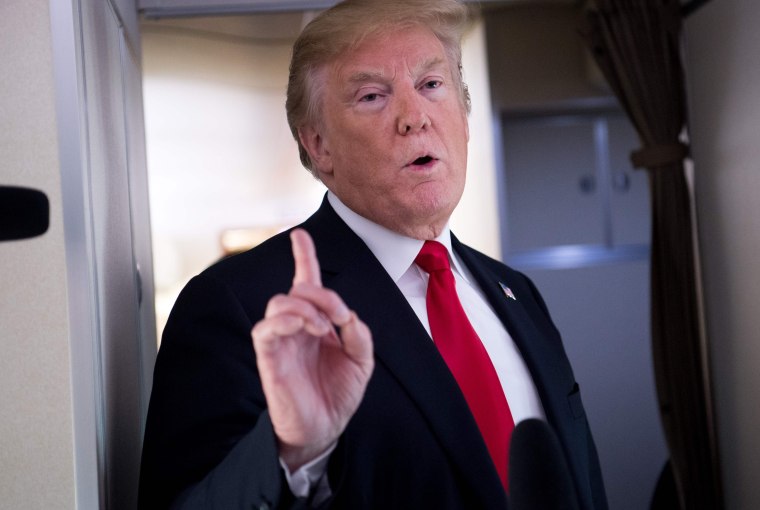In an interview this week, Donald Trump described his social-media messages as "my form of telling the truth." The phrasing was odd: the president didn't say his missives are true, but rather his "form" of what's true.
He said something similar two days later.
President Trump defended his proclivity to spread misleading statements and falsehoods, saying in a television interview Wednesday that he tells the truth when he can."Well, I try. I do try ... and I always want to tell the truth," Trump said in an interview with ABC News. "When I can, I tell the truth. And sometimes it turns out to be where something happens that's different or there's a change, but I always like to be truthful."
Note Trump's choice of words, which seemed to reflect an awkward realization that he's not considered to be an honest person. The president could've simply said, "I always tell the truth," but he didn't.
We were instead treated to a series of caveats: Trump "tries" to tell the truth. He "wants" to tell the truth. He "likes" to be truthful.
Maybe he ought to "try" harder. The Washington Post reported today:
In the first nine months of his presidency, Trump made 1,318 false or misleading claims, an average of five a day. But in the seven weeks leading up the midterm elections, the president made 1,419 false or misleading claims — an average of 30 a day. [...]The flood of presidential misinformation has picked up dramatically as the president has barnstormed across the country, holding rallies with his supporters. Each of those rallies usually yields 35 to 45 suspect claims. But the president often has tacked on interviews with local media (in which he repeats the same false statements) and gaggles with the White House press corps before and after his trips.
When it comes to the Washington Post's database of the president's false claims, Trump broke his own record in September with 599 false and misleading claims. He then broke his own record again in October, nearly doubling that total.
Now, some might argue that the comparison to previous months isn't entirely fair since the president has been talking a lot more as the midterm elections draw closer. But that's not much of a defense: the more Trump speaks, the more Trump lies.
The reporter who spoke to Trump this week about his veracity was ABC News' Jonathan Karl, who in May asked White House Press Secretary Sarah Huckabee Sanders, "[W]hen the president so often says things that turn out not to be true, when the president and the White House show what appears to be a blatant disregard for the truth, how are the American people to trust or believe what is said here and what is said by the president?"
Neither Trump nor anyone on his team have ever answered that question in a satisfactory way.
